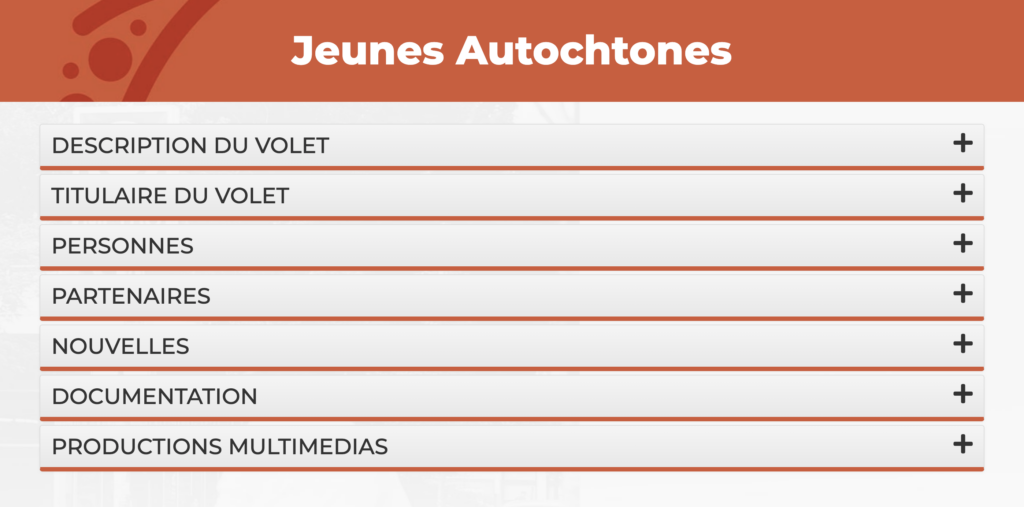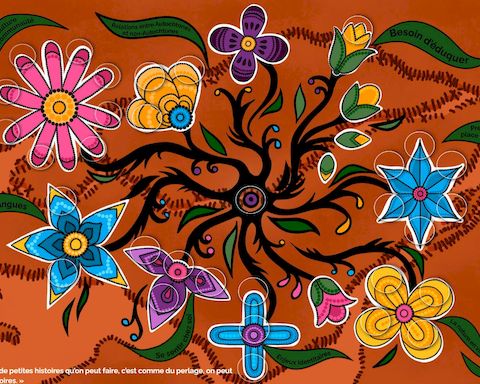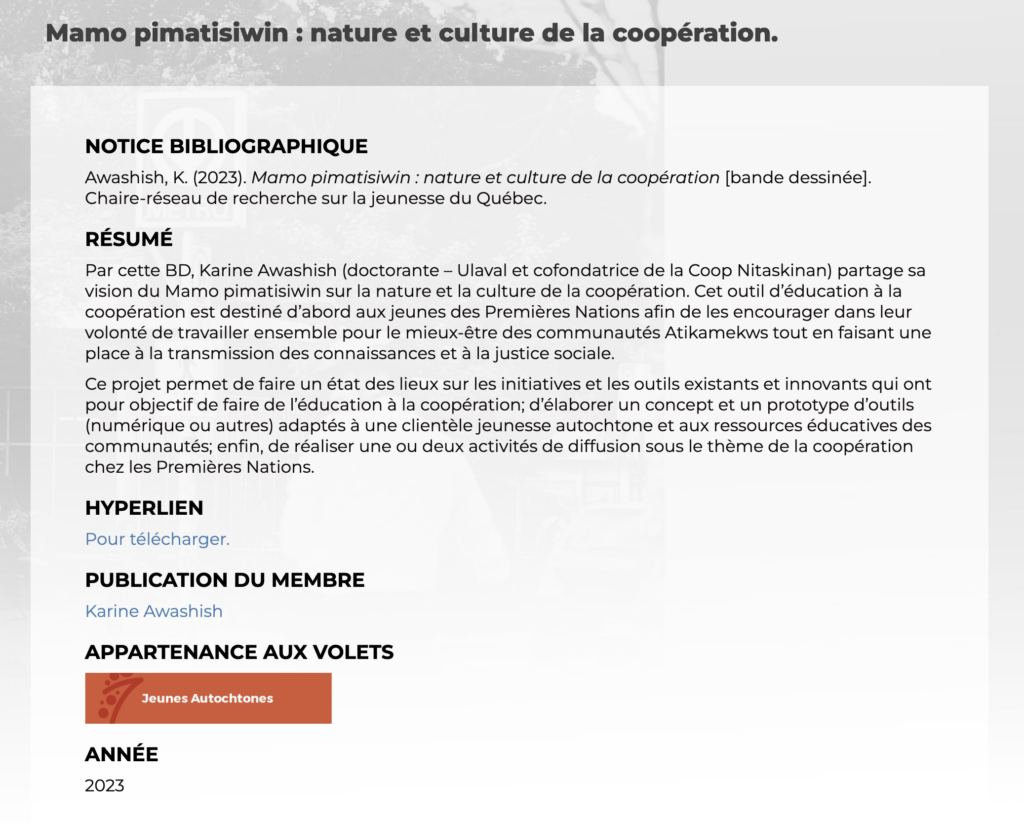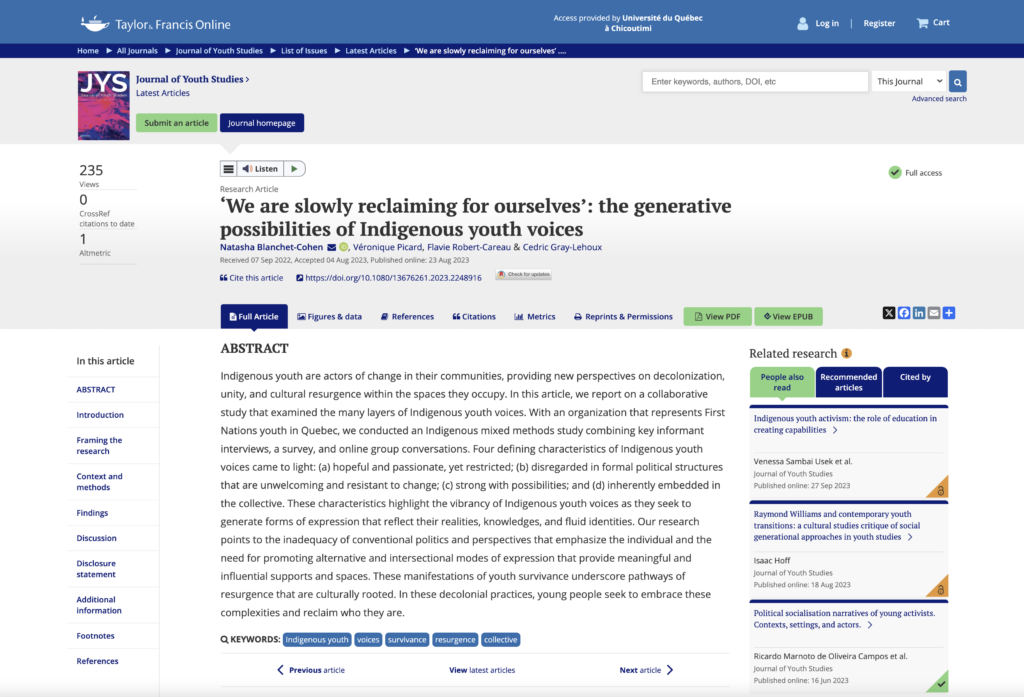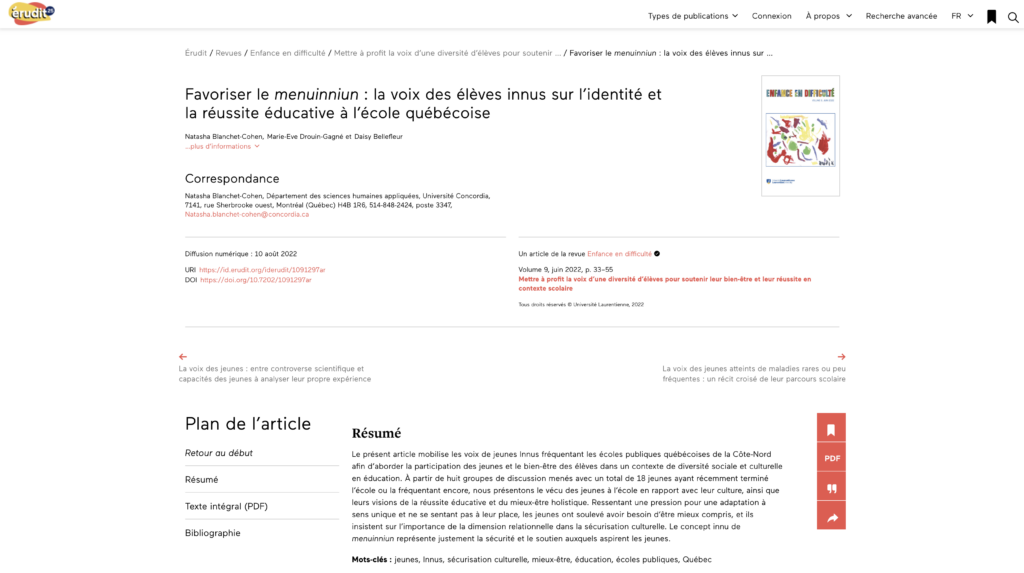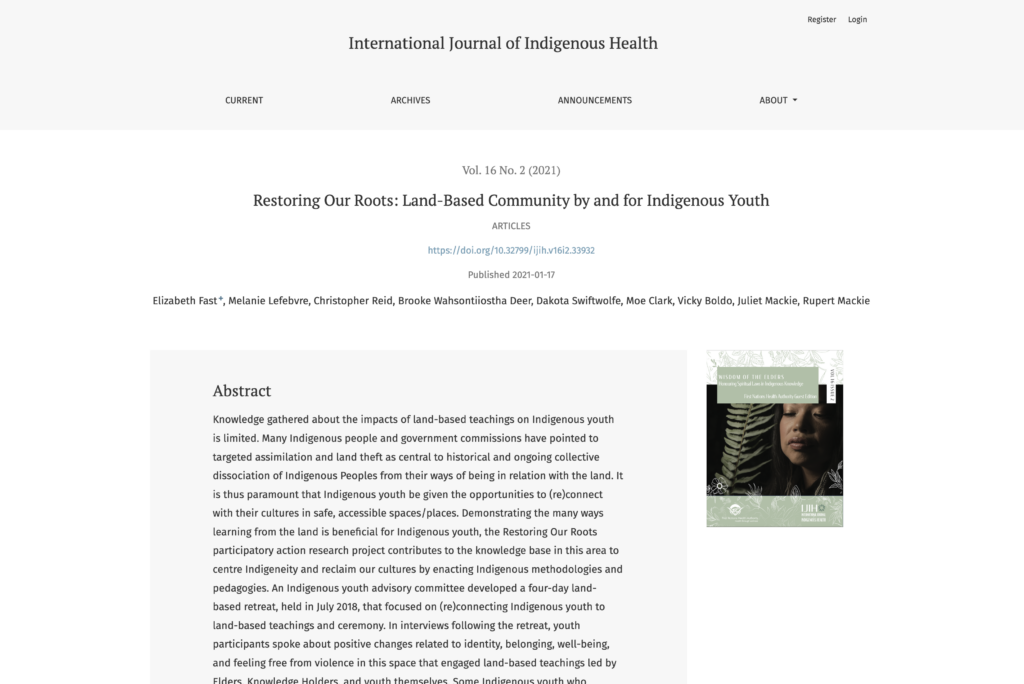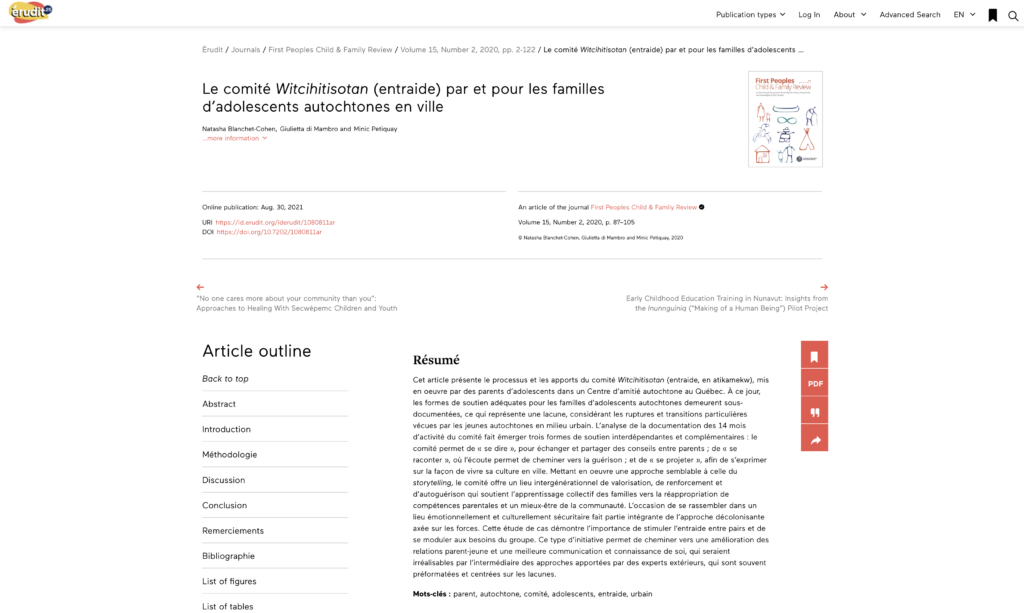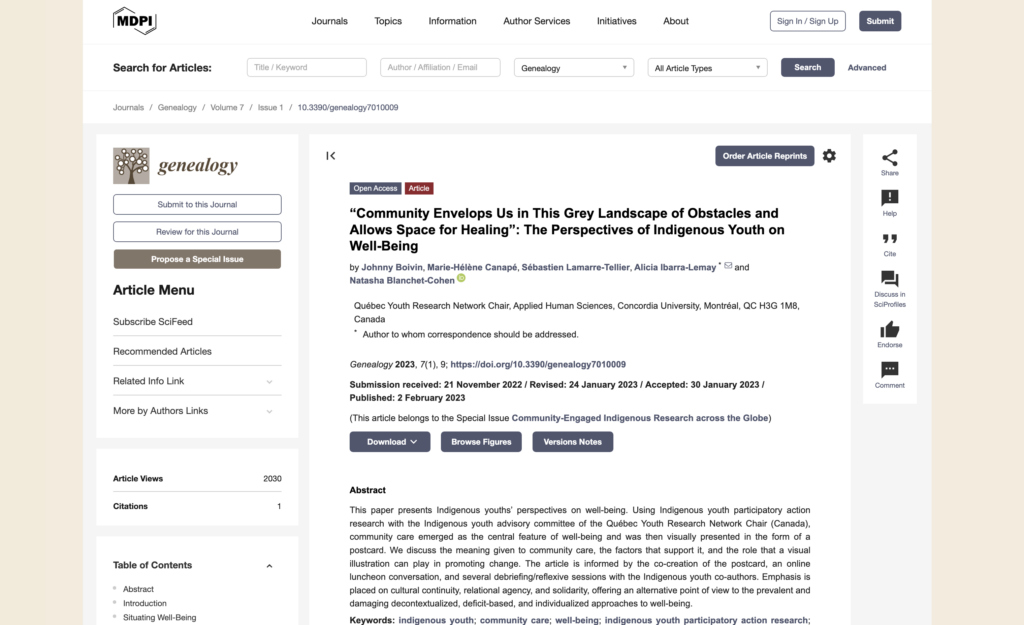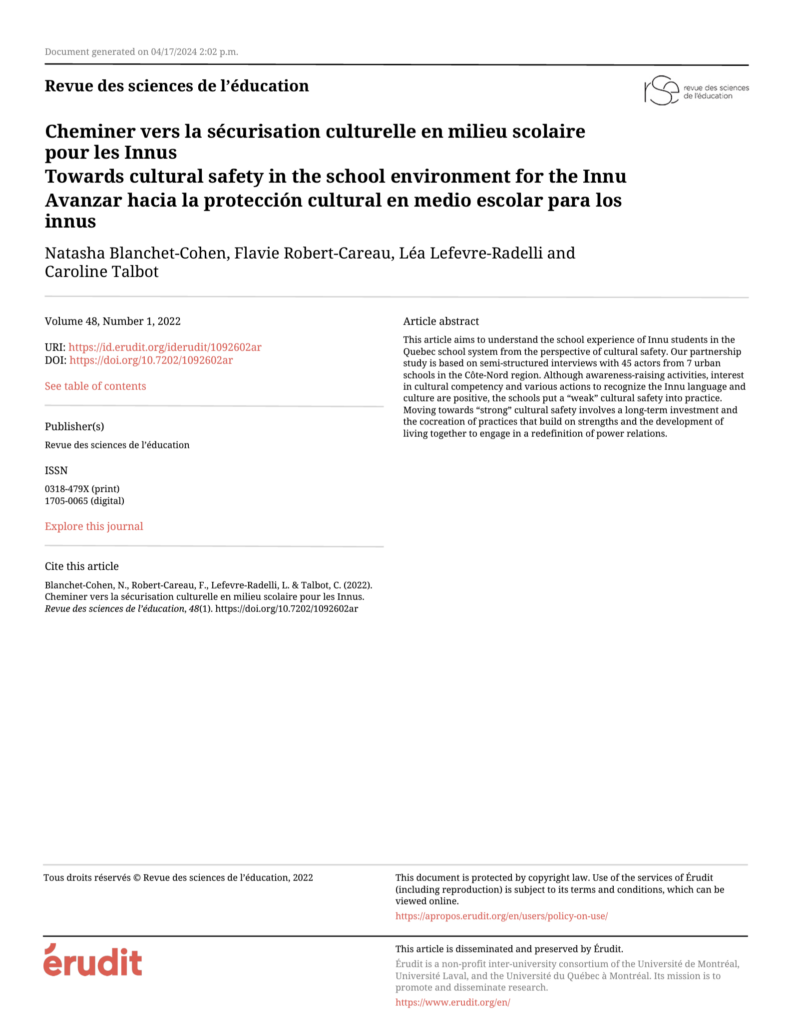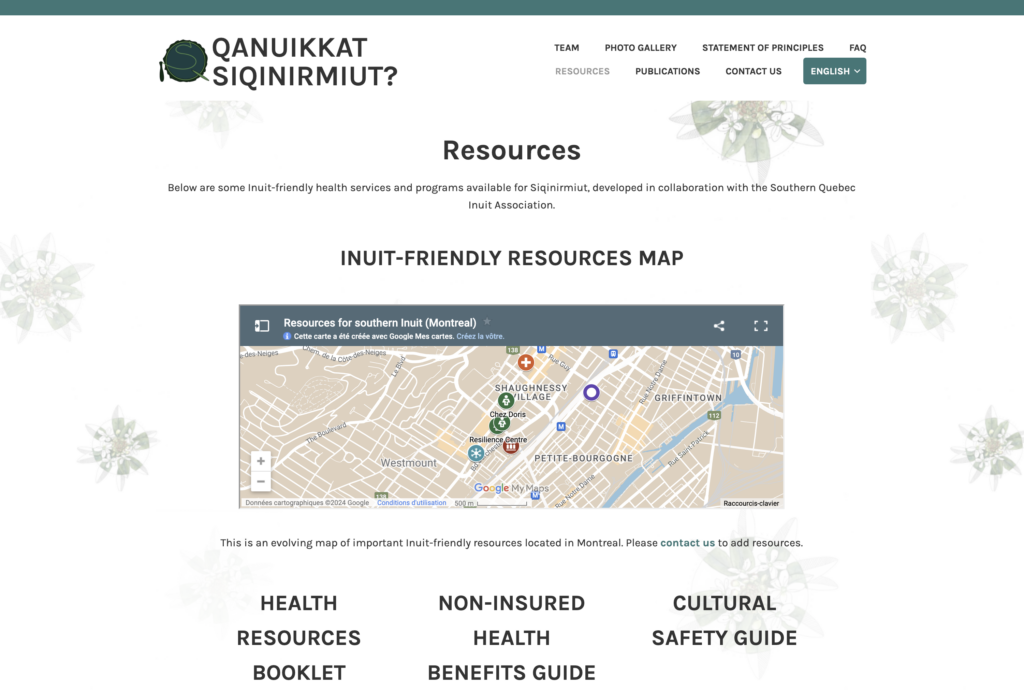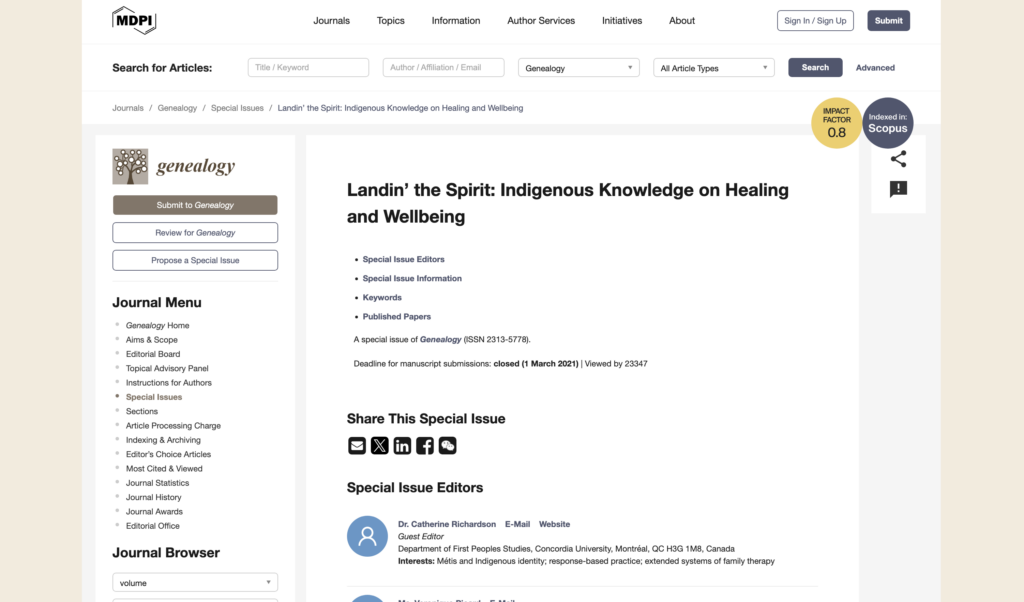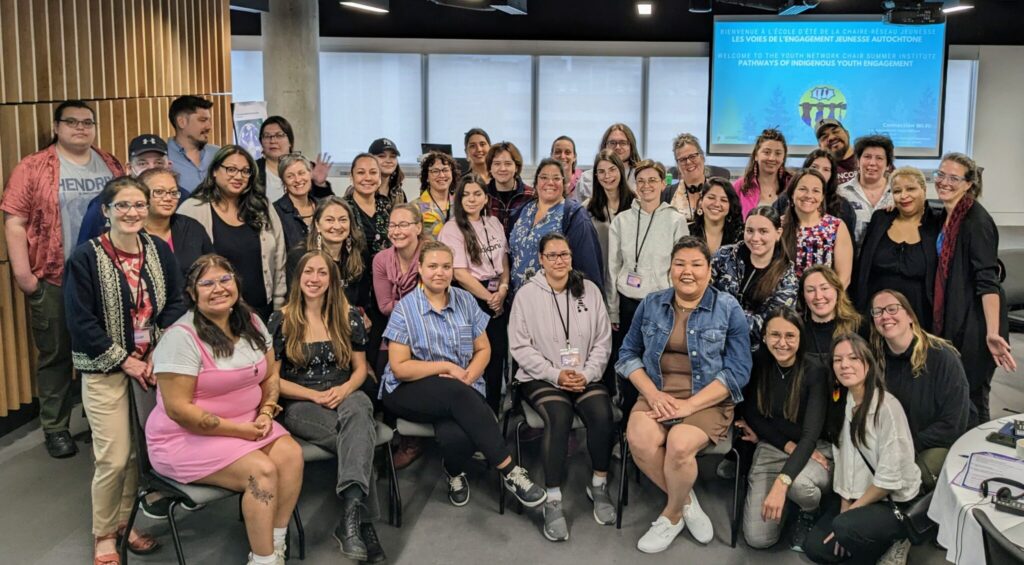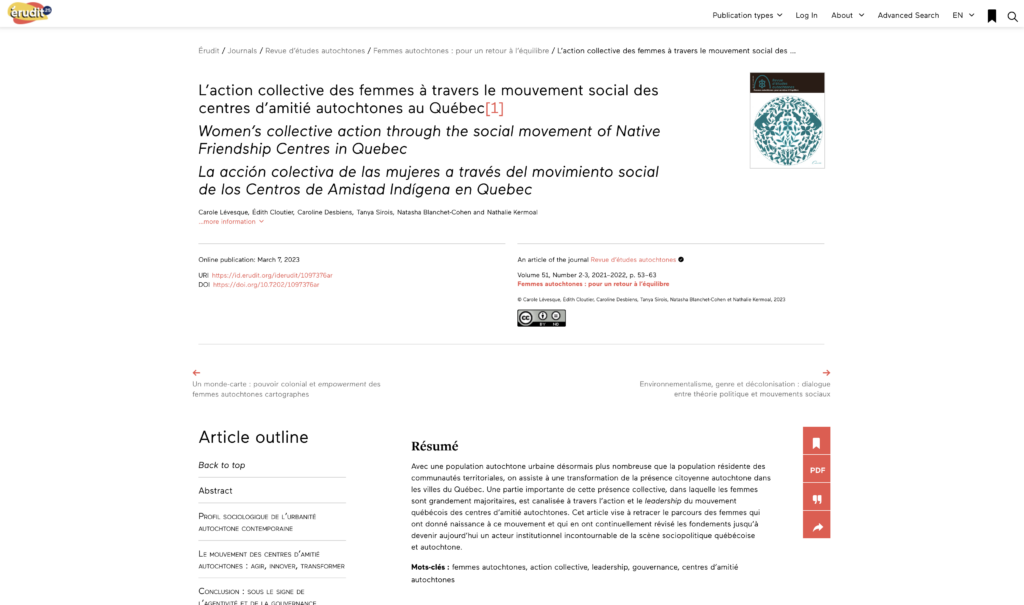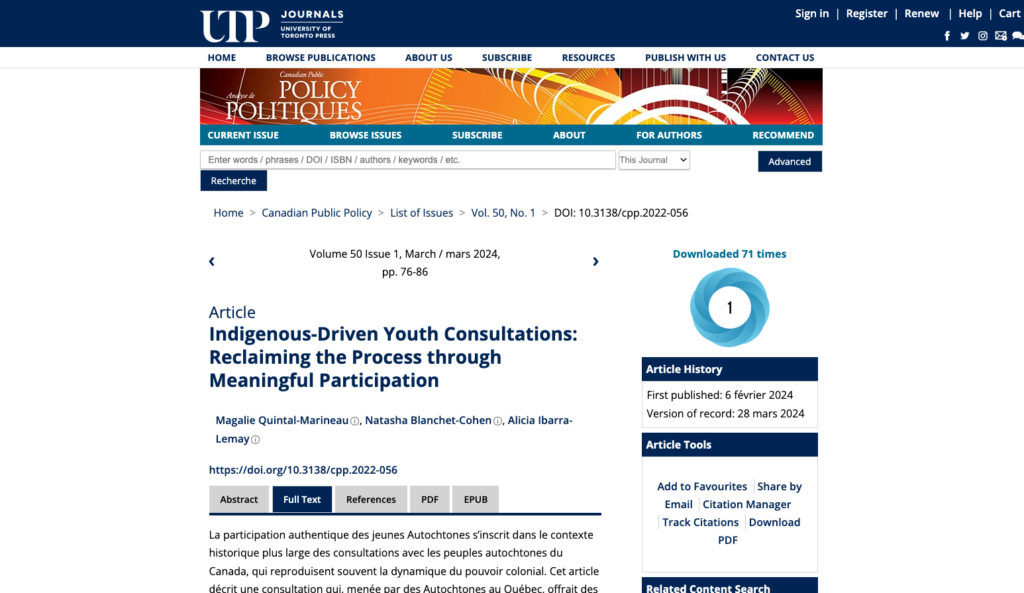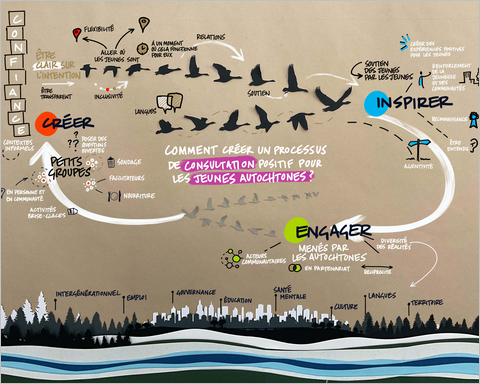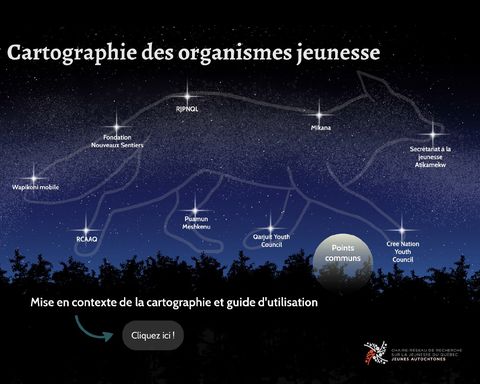Notice bibliographique
Richardson, C. K., Aviles-Betel, K., Ismail-Allouche, Z. et Picard, V. (2021). Healing and rebalancing in the aftermath of colonial violence: An Indigenous-informed, response-based approach. Genealogy, 5(3), 69-77.
Résumé
What is understood as “healing” is often culturally and socially embedded. One’s culture helps to define what it means to be well or unwell, and what it means to heal or recover. Sometimes, one’s culture sits in contrast to the mainstream, western scientific approach to health, often seen as the freedom from illness. A Métis worldview is holistic in itself, and it incorporates notions and practices of well-being that go beyond just being “illness or problem free”. Wellbeing is often directly linked to our relationship with the food that sustains us, to the various animal and plant worlds, to the elements, and to being in “right relationship” to the world and others. Dr. Catherine Richardson Kinewesquao presents an approach to healing which she refers to as transformative, energetic and spiritual. She draws from Cree teachings related to “mamatowisowin”, the life force inherent in all beings and the act of calling forth this energy into the healing process. This life force is connected to dignity, justice and care. Metaphorically, it can be talked about as being released or made available when an individual opens to discussing/facing fears and sorrows, distressing events and losses, and to finding a way to integrate them into their whole being. It is a form of energy transmutation, of becoming more emotionally fluid and liberated from the negativity of what is “acting upon them”. When energy is unblocked or released, particularly in the presence of a compassionate listener, the person may then have more energy for their chosen life projects. By using a response-based approach in the aftermath of violence and degradation, and by contextualizing events through exploratory conversations, one may transform stress into productive energy to fuel life, growth and action. Kinewesquao articulates the use of cultural processes for stress management and working with the natural world to enhance well-being. Ultimately, she makes a case that “positive social responses” (e.g., love, care, compassionate listening, support and cultural rituals) to one’s suffering can be some of the best healing medicines.
Hyperlien
https://doi.org/10.3390/genealogy5030069Publication du membre
Catherine RichardsonVéronique Picard
Appartenance aux volets










